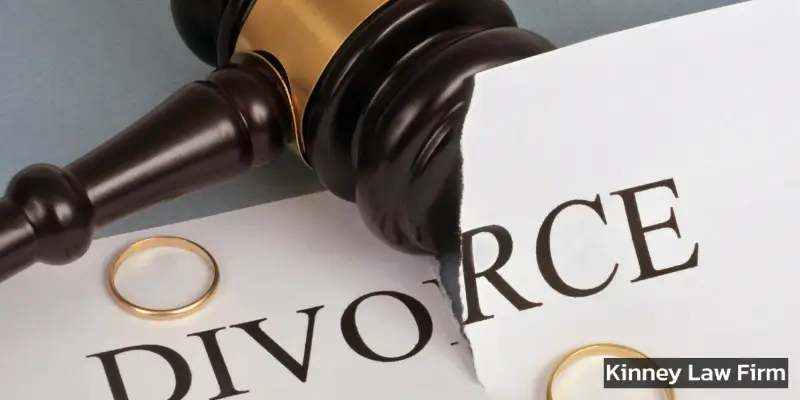Sumter Military Divorce Lawyer
Sumter Military Divorce Attorney
Divorces are difficult for just about everyone, but the legal process can be more complicated for couples where one or both spouses are serving in the military. An experienced Sumter military divorce lawyer is qualified and prepared to help you with all legal proceedings related to your divorce. Whether you or your spouse are an active duty service member, your attorney can ensure all divorce matters are handled fairly and appropriately. A respected family lawyer in Sumter understands the unique legal challenges military families face and works hard to protect your future.
The skilled and adept divorce lawyers at Kinney Law Firm have successfully guided numerous couples and their families through the various legal matters that arise during a divorce. Our legal team proudly assists active duty and veteran military service members in the Sumter area and throughout South Carolina. No matter where you are in the divorce process, we can help you with custody arrangements, spousal support, property division, and more.

Understanding the Differences in Military Divorce
In order to initiate a military divorce in South Carolina, you must meet the residency requirement. At least one spouse must reside or be stationed in South Carolina and must have lived in the state continuously for at least a year prior to filing for divorce. If both spouses live in the state, however, the residency requirement can be reduced to three months.
Another important aspect of military divorces to be aware of is the Servicemembers Civil Relief Act (SCRA), which allows service members to focus on their active duties by providing certain legal protections. Under this act, an active duty service member can request a postponement of divorce proceedings. Those who are eligible may be given a stay of 90 days or longer.
Additionally, if the divorce is uncontested, the active duty spouse can waive their rights, allowing the court to officially finalize the divorce. The SCRA also grants military members the ability to reopen any default divorce judgments that were determined while they were on active duty and unable to respond to the proceedings.
How Dividing Pension Accounts Works in Military Divorces
All divorce proceedings include the equitable division of marital property between spouses, which encompasses retirement and pension accounts. Military pensions, in particular, are subject to the Uniformed Services Former Spouses’ Protection Act (USFSPA).
According to this act, spouses and former spouses have the right to a portion of a military member’s pension, though this is not a guarantee in all cases. If the division of a military pension is awarded in a divorce, the service member and spouse must qualify under the 10/10 rule. The service member and their spouse must have been married for at least ten years, during which time the military member must have served for ten years or more.
If these qualifications aren’t met, the pension may still be divided, but the military spouse will be responsible for overseeing the monthly installments. Otherwise, the payments are handled by the Defense Finance and Accounting Service. Regardless of whether a couple qualifies under the 10/10 rule or not, the USFSPA prohibits state courts from awarding more than 50% of the service member’s disposable retired pay.
Family courts may decide to award a spouse a percentage of the pension, an exact dollar amount, or money and other assets instead of a portion of the military pension. The court will choose what is most equitable and appropriate given the specific circumstances. Some factors that may be considered include the length of the marriage, how long the military member served and whether they’ll continue to serve after the divorce, and other important aspects of the case.

FAQs About Sumter,SC Military Divorce Law
Is a Military Divorce Different From a Civilian Divorce?
Military divorces are not significantly different from civilian divorces in Sumter,SC , but there are some important distinctions. When a service member or their spouse petitions for divorce, the Servicemembers Civil Relief Act allows them to postpone the proceedings until the active duty military spouse is able to attend to their affairs. Military members can also waive these rights if the divorce is uncontested. There are also guidelines in place regarding the division of military pensions.
What Is the 10/10 Rule in a Military Divorce?
In military divorces, the 10/10 rule states that a former spouse is entitled to a portion of their spouse’s military pension if the couple was married for at least ten years and the service member served at least ten years of duty during the marriage. The court may award the spouse an exact dollar amount or percentage of the military pension, or the spouse may receive money or other marital property in lieu of their share of the pension.
What Is a Military Spouse Entitled to in a Divorce?
Like any divorce, each spouse within a military divorce is entitled to an equitable portion of their shared marital property. Under the Uniformed Services Former Spouses’ Protection Act, a qualifying spouse of a military member is entitled to a maximum of 50% of their pension or an equitable portion of other assets. For spouses who don’t qualify, the court may still award them a portion of the service member’s pension.
How Do I Prepare for a Military Divorce in SC?
In South Carolina, if you’re preparing for a military divorce, it’s strongly advised that you seek legal counsel from a qualified and experienced military divorce lawyer.
Whether you, your spouse, or both of you are currently on active duty, a skilled divorce attorney with practical experience handling military divorce proceedings can help you prepare and guide you throughout the process. They can advocate on your behalf, protecting your rights and ensuring the proceedings are fair and properly carried out.
Trust an Experienced Military Divorce Lawyer for Help
The skilled legal team at Kinney Law Firm have effectively assisted numerous military couples and families during divorce proceedings. Our proficient attorneys understand how complicated divorce can be for both active duty and retired service members. Let the knowledge and experience of our divorce lawyers work for you, simplifying and streamlining the process. Contact our office today to schedule a consultation with a kind, diligent military divorce attorney.


